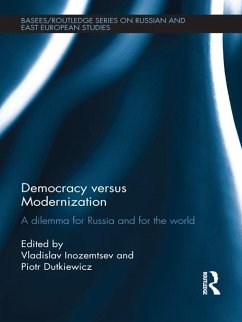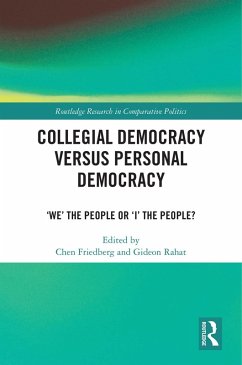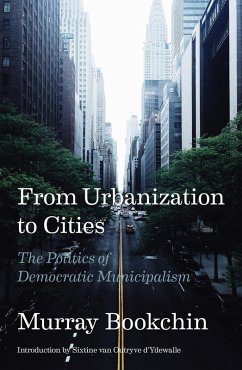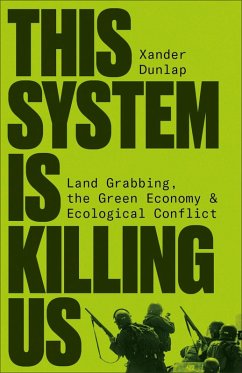
Democracy Versus Sustainability (eBook, ePUB)
Versandkostenfrei!
Sofort per Download lieferbar
12,95 €
inkl. MwSt.
Weitere Ausgaben:

PAYBACK Punkte
6 °P sammeln!
This book provides a detailed analysis of how various mainstream and alternative parties, business groups, social movements, policymakers, and others are engaged in a struggle to shape emerging post-carbon societies. Will these post-carbon societies be new forms of capitalism with classes and social relations similar to existing ones but based on green growth modernisation? Or will we see the creation of post-carbon democracies that are post-capitalist and take diverse eco-socialist, post-growth and other forms? Given the current political impasse, will these socio-political changes occur with...
This book provides a detailed analysis of how various mainstream and alternative parties, business groups, social movements, policymakers, and others are engaged in a struggle to shape emerging post-carbon societies. Will these post-carbon societies be new forms of capitalism with classes and social relations similar to existing ones but based on green growth modernisation? Or will we see the creation of post-carbon democracies that are post-capitalist and take diverse eco-socialist, post-growth and other forms? Given the current political impasse, will these socio-political changes occur within parliamentary institutions or be established in opposition to existing practices of representative democracy?
There is a profound lack of awareness about the coming struggle over national and individual material footprints. Any significant but necessary changes to the way material resources are currently used will alter political and socio-economic alignments of both democratic and anti-democratic parties and movements across the political spectrum. Moreover, these struggles are likely to change global geo-political relations, and affect current levels and forms of extraction, production, trade, consumption, and employment. We face volatile and unpredictable times.
These and many other issues are discussed with reference to a wide range of political movements, policy proposals and debates over cultural and political economic practices. It is the conflict between various institutional practices and conceptions of 'democracy' and 'environmental sustainability' that will help shape future levels of equality or social justice across the world.
There is a profound lack of awareness about the coming struggle over national and individual material footprints. Any significant but necessary changes to the way material resources are currently used will alter political and socio-economic alignments of both democratic and anti-democratic parties and movements across the political spectrum. Moreover, these struggles are likely to change global geo-political relations, and affect current levels and forms of extraction, production, trade, consumption, and employment. We face volatile and unpredictable times.
These and many other issues are discussed with reference to a wide range of political movements, policy proposals and debates over cultural and political economic practices. It is the conflict between various institutional practices and conceptions of 'democracy' and 'environmental sustainability' that will help shape future levels of equality or social justice across the world.
Dieser Download kann aus rechtlichen Gründen nur mit Rechnungsadresse in A, D ausgeliefert werden.













